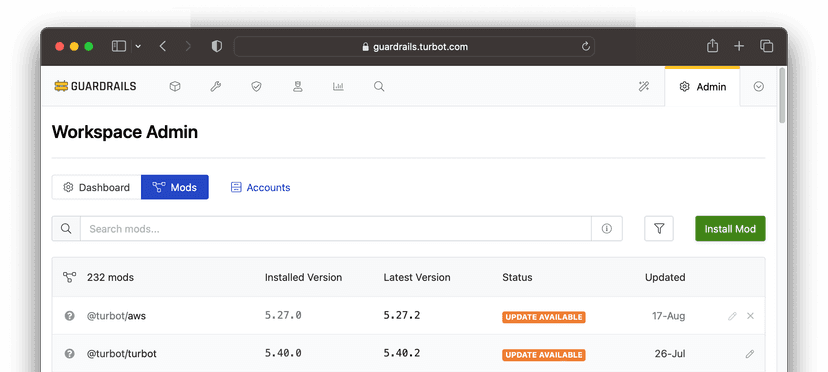Changelog
Subscribe to Guardrails changelog via RSS or join #changelog on our Slack community to stay updated on everything we ship.

Subscribe to Guardrails changelog via RSS or join #changelog on our Slack community to stay updated on everything we ship.

Bug fixes
Resource Types
Control Types
Policy Types
Action Types
Note
To ensure compatibility and proper functioning of the mod, please upgrade TE to v5.57.0 or higher.
Bug fixes
Control Types
Renamed
Policy Types
Renamed
Control Types
Policy Types
Note
This mod requires @turbot/azure-storage v5.31.0 or higher for the Storage Services (Section 9) controls to function correctly.
Bug fixes
Bug fixes
Bug fixes
Bug fixes
Bug fixes
Bug fixes
Bug fixes
Bug fixes
Bug fixes
What's new?
Server
UI
Requirements
Base images
Alpine: 3.17.5 Ubuntu: 22.04.3
Bug fixes
Bug fixes
Bug fixes
Bug fixes
Requirements
Base images
Alpine: 3.17.5 Ubuntu: 22.04.3
Bug fixes
Notes
Requirements
Base images
Alpine: 3.17.5 Ubuntu: 22.04.3
Bug fixes
Requirements
Base images
Alpine: 3.17.5 Ubuntu: 22.04.3